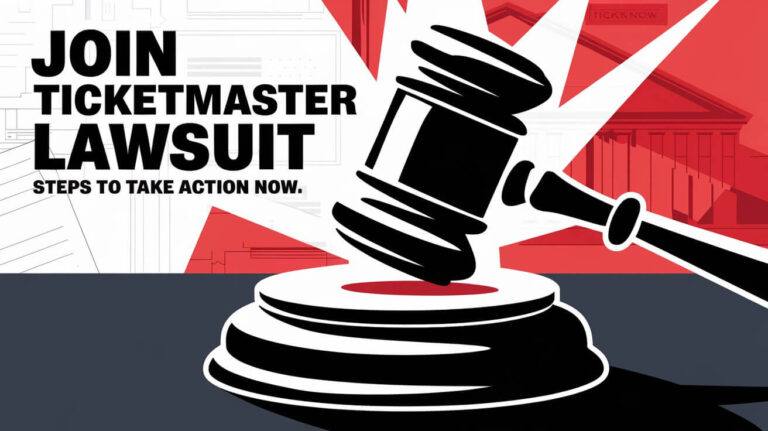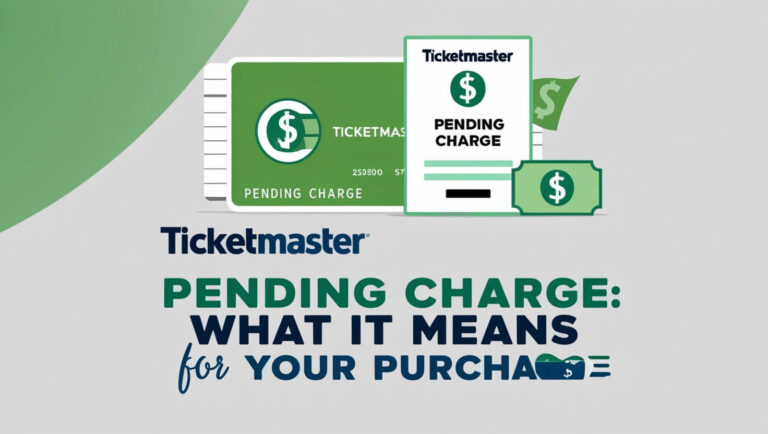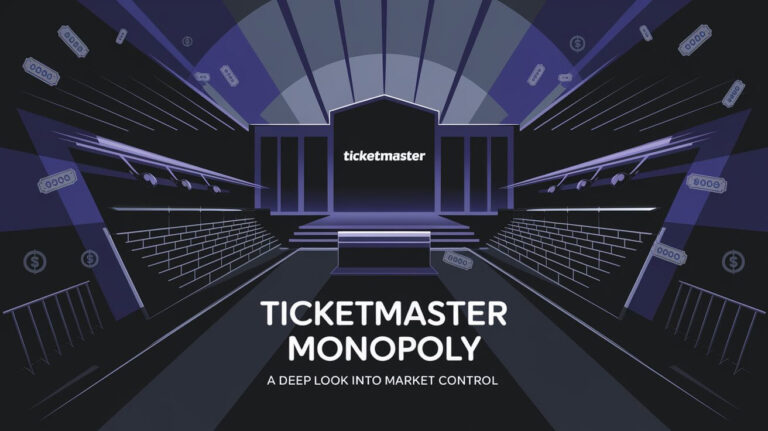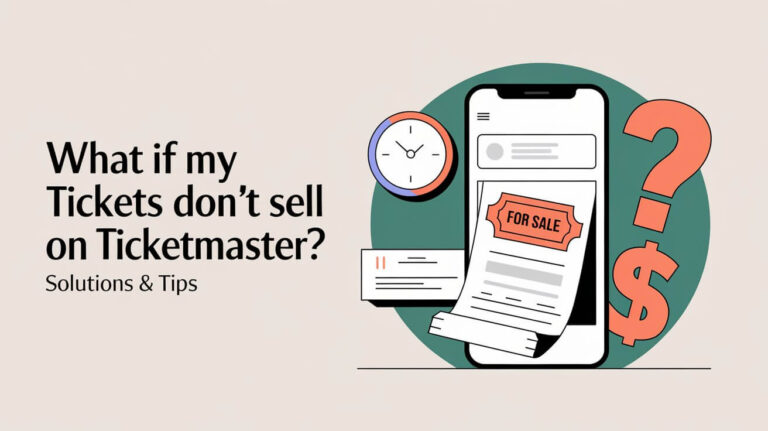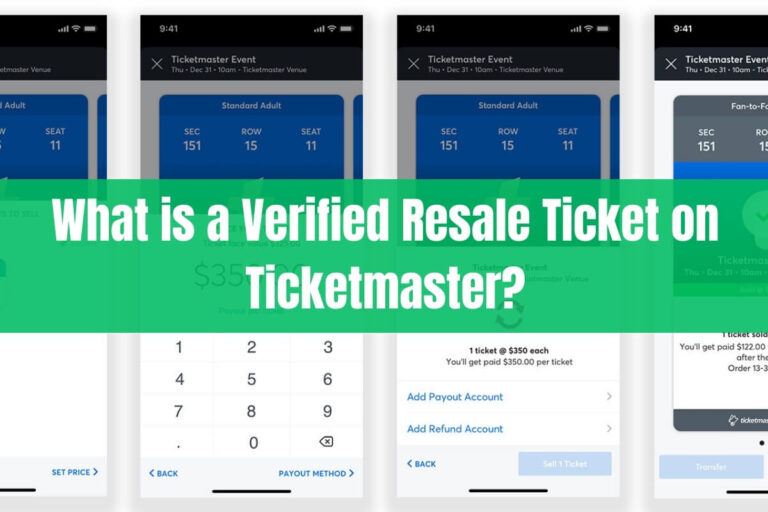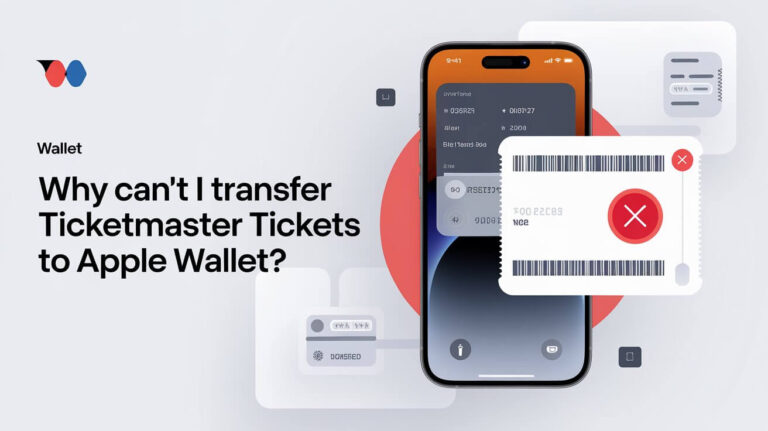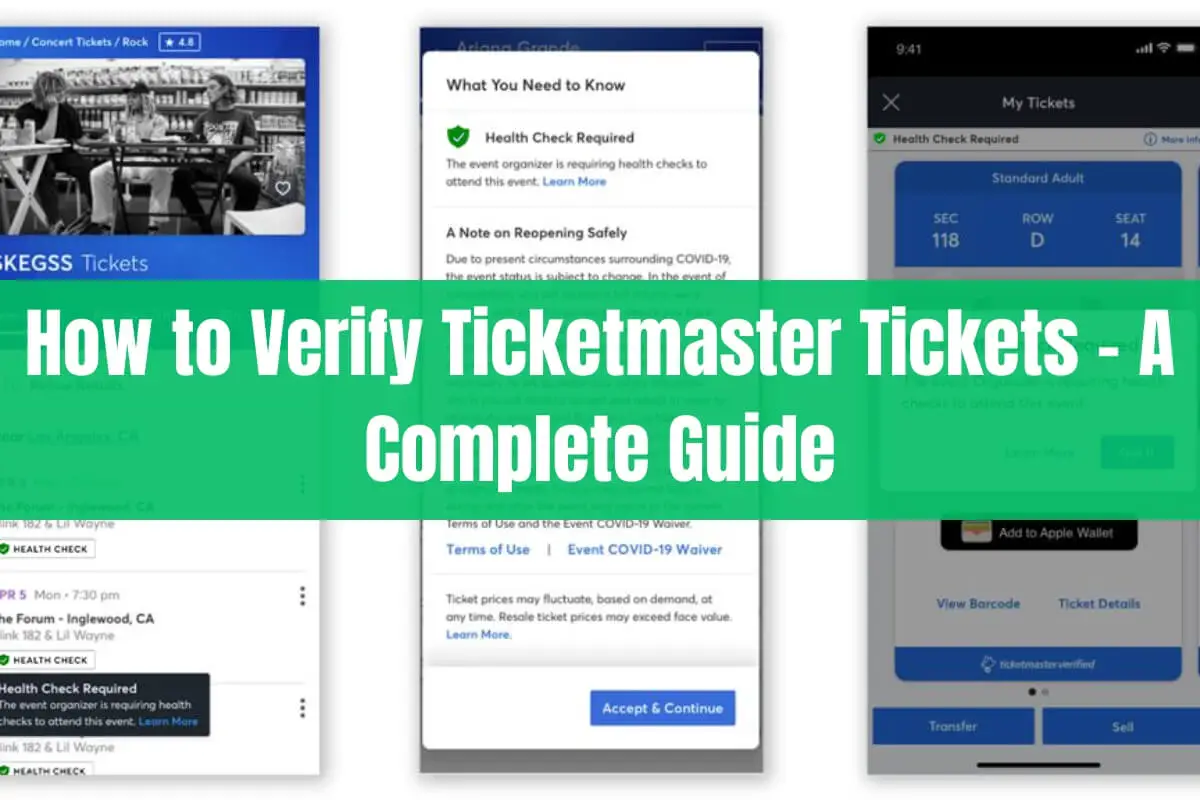
Are you worried about purchasing fake or counterfeit Ticketmaster tickets? Don’t let ticket scams ruin your experience! In this detailed guide, we’ll show you how to verify the authenticity of Ticketmaster tickets and ensure a hassle-free event day.
The importance of verifying tickets cannot be overstated. Falling victim to ticket scams can lead to disappointment, financial loss, and even identity theft. Fortunately, there are several ways to confirm the legitimacy of your Ticketmaster tickets, which we’ll cover in detail throughout this article.
Here’s what we’ll explore:
- Understanding Ticketmaster and its ticket verification process
- Signs of fake or counterfeit Ticketmaster tickets
- Step-by-step methods for verifying ticket authenticity
- Purchasing tickets from official sources
- Reporting and recovering from Ticketmaster scams
- Tips for avoiding ticket scams altogether
Let’s dive in!
Understanding Ticketmaster and Its Ticket Verification Process
Before we delve into verification methods, let’s briefly discuss Ticketmaster and its role in preventing counterfeit tickets.
Ticketmaster is a leading ticket sales platform that operates worldwide, selling tickets for concerts, sports events, and various other live performances. The company is well-known for its efforts to combat ticket fraud and ensure a secure ticketing experience for customers.
Ticketmaster employs sophisticated technologies to prevent counterfeits. This includes using unique barcodes, QR codes, and other security features that make it extremely difficult for scammers to replicate tickets successfully. Additionally, Ticketmaster has measures in place to detect and invalidate any counterfeit tickets that manage to slip through the cracks.
To ensure you’re getting authentic tickets, it’s crucial to purchase them from official Ticketmaster sources, which include:
- Ticketmaster.com
- The Ticketmaster mobile app
- Venue box offices
- Ticketmaster’s official resale platforms (more on this later)
By sticking to these authorized sources, you can significantly reduce the risk of falling victim to ticket scams.
Signs of Fake or Counterfeit Ticketmaster Tickets
Scammers are constantly evolving their tactics, making it increasingly challenging to identify fake tickets. However, there are several red flags to watch out for that can signal a potential scam:
Unrealistically Low Prices
If a ticket price seems too good to be true, it probably is. Scammers often advertise tickets at unrealistically low prices to lure unsuspecting buyers. Be wary of deals that significantly undercut the market value for the event.
Sellers Claiming to Be Ticketmaster Agents
Ticketmaster does not employ individual agents to sell tickets on third-party platforms like Craigslist or Facebook Marketplace. If someone claims to be a Ticketmaster agent selling tickets outside official channels, it’s likely a scam.
Requests for Unusual Payment Methods
Legitimate ticket sellers will never ask you to pay using unconventional methods like wire transfers, cryptocurrency, or gift cards. These payment methods offer little to no buyer protection, making it nearly impossible to recover your funds if you’ve been scammed.
Offers for Sold-Out Event Tickets
While it’s possible to find resale tickets for sold-out events, be cautious of sellers advertising these tickets before the general public on-sale date. It’s often a sign of speculative ticketing, where sellers list tickets they don’t actually possess.
Verifying the Authenticity of Ticketmaster Tickets
Now that you know some common signs of ticket scams, let’s explore the various methods you can use to verify the authenticity of your Ticketmaster tickets.
Checking Your Ticketmaster Account
If you purchased your tickets directly from Ticketmaster, the easiest way to verify their authenticity is to check your Ticketmaster account.
Here’s how:
- Log in to your Ticketmaster account on their website or mobile app.
- Navigate to the “My Events” or “My Tickets” section.
- Locate the event you’ve purchased tickets for and view the ticket details.
If your tickets show up in your Ticketmaster account, they are real. You can also verify the event date, venue, and seat numbers.
Contacting Ticketmaster Support
If you’re unsure about the authenticity of your tickets or have any concerns, you can always reach out to Ticketmaster’s customer support team for assistance.
To contact Ticketmaster support:
- Visit the Ticketmaster website or open their mobile app.
- Look for the “Contact Us” or “Support” section.
- Choose the appropriate contact method (phone, email, or live chat).
- Be prepared to provide details about your ticket purchase, including the event name, date, and order number.
Ticketmaster’s support team can verify your tickets and provide guidance on what to do if there are any issues.
Examining Physical Tickets
If you’ve purchased physical tickets, there are a few indicators you can look for to determine their authenticity:
- Spelling and grammar: Legitimate Ticketmaster tickets will be free of spelling and grammatical errors.
- Printing quality: Authentic tickets are printed on high-quality paper stock, both on the front and back.
- Venue and event details: Double-check that the event name, date, venue, and seating information match the details you initially purchased.
While checking for errors, printing quality, and correct details can help spot fakes, scammers are getting better at replicating authentic-looking tickets that could pass a quick glance.
Purchasing Tickets from Official Sources
The best way to ensure you’re getting authentic Ticketmaster tickets is to purchase them directly from official sources. These include:
- Ticketmaster.com: The official Ticketmaster website is the most reliable source for purchasing tickets.
- Ticketmaster mobile app: The Ticketmaster mobile app offers a secure and convenient way to buy tickets on-the-go.
- Venue box offices: Many venues sell tickets directly through their box offices, eliminating the risk of third-party scams.
- Ticketmaster’s Fan-to-Fan Resale platform: Ticketmaster’s official resale platform ensures that all resold tickets are verified and issued in your name, preventing counterfeiting.
By purchasing from these authorized sources, you can rest assured that your tickets are 100% legitimate and valid for entry to the event.
Reporting and Recovering from Ticketmaster Scams
Unfortunately, even with all the precautions in place, some people still fall victim to ticket scams. If you find yourself in this situation, it’s essential to act quickly to increase your chances of recovering your money or obtaining valid tickets.
Reporting the Scam
If you’ve been scammed when buying Ticketmaster tickets, here are the steps you should take:
- Contact Ticketmaster: Reach out to Ticketmaster’s customer support and explain your situation. They may be able to issue new tickets or provide guidance on how to proceed.
- File a chargeback: If you paid with a credit card, contact your financial institution and initiate a chargeback process.
- Report to the FTC: File a complaint with the Federal Trade Commission (FTC) at reportfraud.ftc.gov. This helps the FTC combat scams and protects others from falling victim.
- Contact law enforcement: Depending on the severity of the scam, you may want to file a police report with your local law enforcement agency.
Recovering from Identity Theft
In some cases, ticket scams can lead to identity theft if you’ve shared personal information with the scammer. If this happens, take immediate action by:
- Placing a fraud alert: Contact the three major credit bureaus (Experian, Equifax, and TransUnion) and request a fraud alert on your credit file.
- Freezing your credit: Consider placing a credit freeze to prevent scammers from opening new accounts in your name.
- Monitoring your credit: Sign up for a credit monitoring service like Aura’s identity theft protection solution to keep an eye on any suspicious activity.
- Reporting identity theft: Visit identitytheft.gov to report the incident and create an identity theft report.
By taking these steps, you can minimize the damage caused by the scam and protect yourself from further financial and personal harm.
Tips for Avoiding Ticketmaster Scams
While verifying ticket authenticity is crucial, the best way to avoid falling victim to scams is to be proactive and cautious from the start. Here are some tips to help you steer clear of Ticketmaster scams:
- Research sellers thoroughly: Before making a purchase, research the seller by reading reviews, checking their online presence, and verifying their legitimacy. Look for any red flags, such as negative reviews, suspicious activity, or a lack of credible information about the seller.
- Be wary of unsolicited communications: Exercise caution when receiving unexpected emails, text messages, or social media messages claiming to be from Ticketmaster. These could be phishing attempts designed to trick you into sharing personal information or clicking on malicious links. Legitimate companies will not send unsolicited messages prompting you to provide sensitive data.
- Avoid high-pressure tactics: Scammers often create a sense of urgency by claiming that tickets are selling fast or that exclusive deals are available for a limited time only. Don’t fall for these high-pressure tactics, and take the time to verify the information independently without rushing into a decision.
- Use secure payment methods: When purchasing tickets, always opt for secure payment methods that offer buyer protection, such as credit cards. Avoid using wire transfers, cryptocurrency, or gift cards, as these methods offer little to no recourse if you’ve been scammed.
- Be cautious of third-party marketplaces: While not all third-party marketplaces are inherently unsafe, exercise extra caution when purchasing tickets from these platforms. Stick to reputable resellers and verify the seller’s legitimacy by reading reviews and checking their online presence before making a purchase.
- Keep personal information private: Never share sensitive personal information, such as credit card details or social security numbers, with anyone claiming to be from Ticketmaster or another ticket seller. Legitimate sellers will never ask for this information during the purchasing process.
- Trust your instincts: If something seems off or too good to be true, it’s better to err on the side of caution. Trust your instincts and don’t proceed with a purchase if you have any doubts about the seller’s legitimacy or the authenticity of the tickets.
By following these tips and remaining vigilant, you can significantly reduce the risk of falling victim to Ticketmaster scams and ensure a safe, enjoyable, and stress-free event experience.

